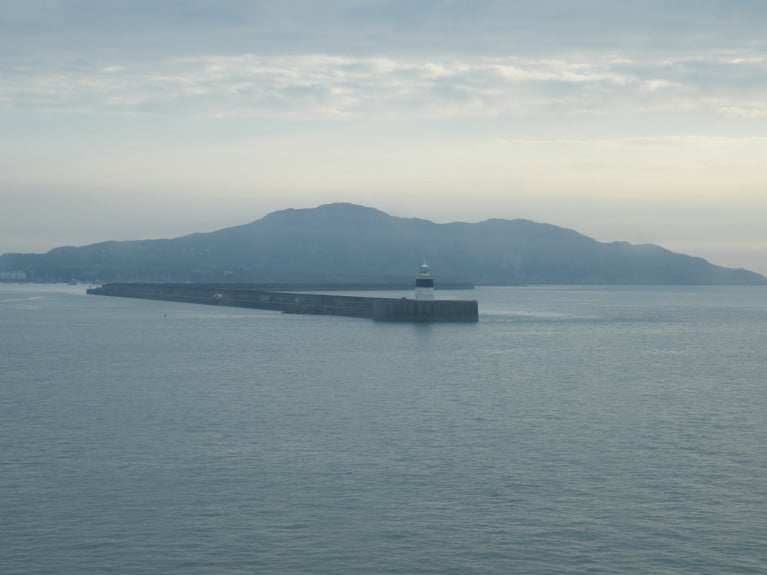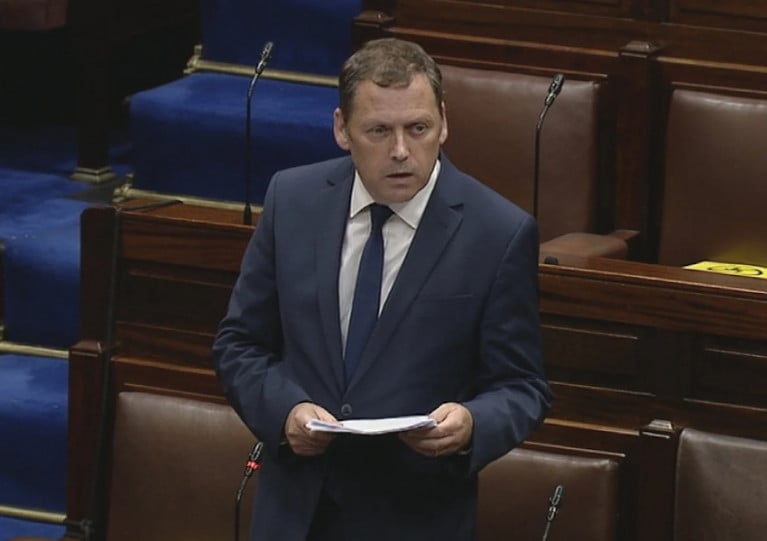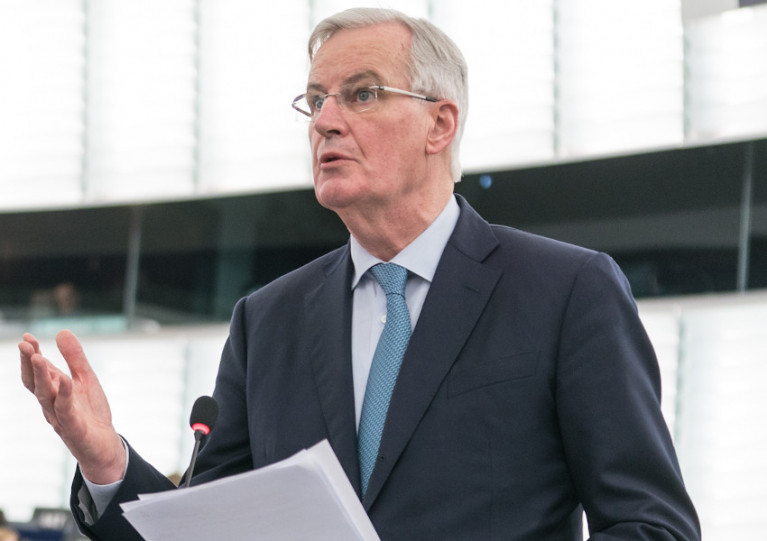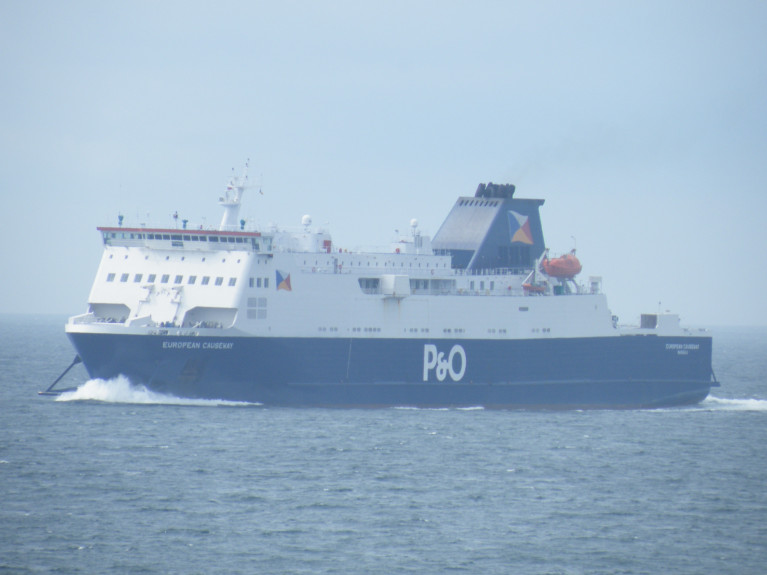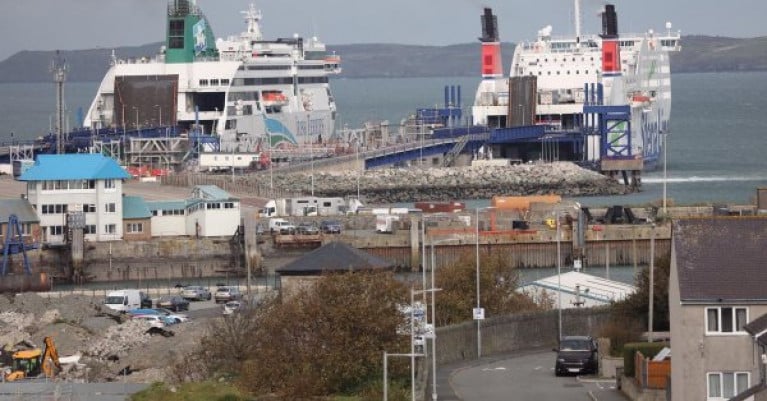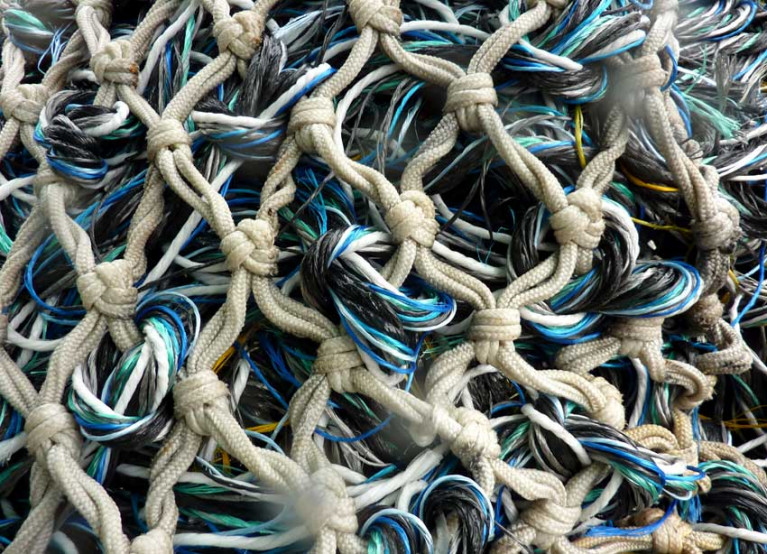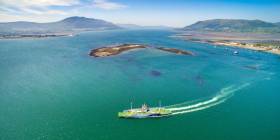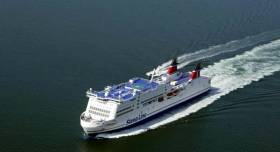Displaying items by tag: Brexit
Holyhead: Freeport Status Gets Local MP's Backing
A Welsh MP has claimed the granting of a freeport status to the (ferry)port of Holyhead could “transform” the fortunes of the town and Anglesey as a whole.
The Government, writes NorthWalesLive, has already promised to create up to 10 freeports across the UK after Brexit.
Being included in such a free port zone would mean that they would be considered to be outside of the UK for customs purposes — meaning companies could import and export goods without paying the usual tariffs.
Chancellor Rishi Sunak is widely reported to be planning to open bidding for towns, cities and regions to become freeports in his autumn budget.
Such reports suggest the ports would be “fully operational” within 18 months of the UK leaving the customs union and single market at the end of this year.
Virginia Crosbie, in a pre-election pledge, promised to campaign for Holyhead to be given such status which she said would “put Holyhead on the international map” as well as “unleash hundreds of new, good quality jobs” and boost tourism.
For more on the north Wales ferryport (incl. the cruise sector) click here.
Negotiations with the UK over future fisheries arrangements were the focus of the first meeting between Ireland’s new Marine Minister, Barry Cowen, and the EU Fisheries Commissioner this past week.
Meeting virtually with Virginius Sinkevičius on Thursday (9 July) from his department’s Tullamore offices, Minister Cowen discussed the importance of the EU’s agreed Brexit negotiation mandate to “uphold existing reciprocal access conditions, quota shares and traditional activity of the Union fleet”.
Minister Cowen said: “This was a very useful first discussion with Commissioner Sinkevičius and it was important to be able to talk first-hand with the commissioner about Ireland’s concerns in relation to the potential negative impacts for our fishing communities in Ireland if we do not put in place a fair and balanced Fisheries Agreement with the UK.
“I reiterated this Government’s full support for the EU negotiating mandate and my confidence that the commissioner and [EU chief negotiator] Michel Barnier will continue to be strong defenders of Irish and EU fishing interests.
“It is clear to me that the negotiations on a fisheries agreement can only be successfully considered in the overall context of the wider EU/UK future relationship agreement and leveraging this will be vital in protecting our coastal communities”.
The minister and Commissioner Sinkevičius also discussed non-Brexit-related fisheries issues such as measures against illegal fishing, and Ireland’s commitment to promoting sustainability in setting quotas and fishing methods, as well as the future European Maritime Fisheries and Aquaculture Fund.
Fisheries Minister Michael Creed has welcomed a briefing on the EU’s fisheries negotiations with the UK from Brussels’ chief Brexit negotiator Michel Barnier.
Minister Creed attended the meeting yesterday (Tuesday 26 May) with Barnier and Fisheries Commissioner Virginius Sinkevicius which involved ministers from member states most impacted by the UK’s withdrawal from the EU, including France, Germany, Spain, Denmark, Sweden, the Netherlands and Belgium.
The ministers were given an update by Barnier on the state of play in the negotiations on a fisheries agreement with the UK after three rounds of discussions have been completed.
The meeting focused on the EU negotiating mandate for these discussions, which sets down the EU position to “uphold existing reciprocal access conditions, quota shares and traditional activity of the Union fleet”.
Ministers welcomed Barnier’s commitment to the linkage between all the parts of these complex negotiations, and specifically the link between the overall economic partnership and the conclusion of a fishing agreement.
All ministers expressed full confidence in Barnier and his team to defend the essential objectives and principles set down in the mandate.
Minister Creed said: “I very much welcome this detailed briefing from Mr Barnier on the current state of play in the fisheries negotiations. The fourth round of negotiations commence next week and it was very useful to hear directly from Mr Barnier about the issues arising and the challenges involved.
“I reiterated Ireland’s full commitment to the EU negotiating mandate and delivering an outcome that upholds our existing access and quota shares. That position was also supported by other ministers.
“The work done to date by Mr Barnier and his team gives confidence that Irish and EU fishing interests will be robustly defended in the negotiations.”
Politicians from the Unionist tradition, The Irish Times writes, have responded with annoyance and dismay after a junior Sinn Féin Minister told a Stormont committee that there will be new physical border posts at Northern Ireland ports.
An “Irish Sea border is now a certainty”, the Ulster Unionist Party leader Steve Aiken said on Thursday following comments by Sinn Féin Minister Declan Kearney that border posts are to be created to deal with trade coming into Northern Ireland from Britain.
Mr Kearney told the Assembly’s Executive Office scrutiny committee that the “British government has confirmed it will urgently put in place detailed plans with the Executive, which does include the physical posts at ports of entry”.
(The Minister) Mr Kearney informed former Sinn Féin MEP Martina Anderson that the British government had signalled that “delivery on that infrastructure needs to start as soon as possible”.
“The British government has indicated that it will provide advice on the requirements and the funding to put that in place.”
Ms Anderson, in her questioning of Mr Kearney on Wednesday, indicated the posts would be at Belfast, Larne and Warrenpoint and would be designed to accommodate additional customs officers and vets, who would be dealing with livestock.
More on this Brexit development here.
Plans for Brexit Checks At Irish Sea Ferry Ports
On the Irish Sea the biggest ferry operator in this market area has confirmed that there will be checks, inspections and some new infrastructure for trade, and it wants to know what the UK government will pay for.
The plans, according to BBC News, will affect both trade with the Republic of Ireland and within the UK between Great Britain and Northern Ireland, as a result of Brexit.
Stena Line said that its working assumption was that new checks would be carried out in British ports.
Stena boss Ian Hampton told the BBC that though a managed exit was "positive" and the extent of new procedures could be lessened with a strong deal, "there's a border, and the border requires checks".
The border will be down the Irish sea, he said. And while his company won't be doing them, it will have to provide room for officials to do the checks, he said.
As well as operating a fleet of ferries connecting Great Britain to the island of Ireland, Stena also owns three ports on the route, and wants to know the physical changes required on what has, until now, been seamless trade.
The industry's assumption is that the checks will be done in Great Britain on exit rather than in Ireland or Northern Ireland.
For much more on trading relationships including those on the North Channel routes click here.
UK Fishing Industry Fears Being Sold Out In Brexit Trade Talks
The UK’s fishing industry fears the British Government will “sell them down the river” in upcoming Brexit trade negotiations, as Sky News reports.
‘Taking back control’ of Britain’s waters for the domestic fishing fleet was one of the linchpin issues for many regional Leave voters.
But with the industry accounting for only 0.12% of GDP, there are concerns that quotas may remain as part of a wider trade deal and the industry won’t reclaim what’s believed to be rightfully theirs.
Jim Portas, CEO of the South Western Fish Producer Organisation, said: “The fishing industry is the acid test of Boris Johnson’s government in Number 10 and I sincerely hope that he will live up to all the promises he’s made for more than three years now.”
Sky News has more on the story HERE.
Operators of the Carlingford Lough Ferry have vowed to keep on sailing despite the potential impact of Brexit, writes The Talk of the Town.
With the possibility of the border between the United Kingdom and Europe being in the middle of the Irish Sea that poses a potential threat for the business given it crosses several times daily from Greenore to Greencastle and vice versa.
Run by Frazer Ferries, the Carlingford Lough Ferry has proven to be hugely popular with both locals and tourists since its maiden voyage in July 2017.
While the threat of Brexit looms large over the business, a post on their Facebook page last night outlined how the company vows to “keep on sailing.”
For further reading click here.
Brexit: Border Inspection Post at Rosslare Europort Nearing Completion
At one of the country's key transport hubs, the managers of Rosslare Europort have insisted that they are ready for Brexit - whenever and however it happens.
Work is almost complete according to RTE News, on a new border inspection post, located just outside the ferryport itself, which will be used if new checks need to be imposed on incoming freight traffic from the UK, which should eliminate any congestion which might otherwise have been caused post-Brexit.
The inspection area is being developed by the OPW on a 17-acre site which will include facilities for Department of Agriculture, Health, customs and revenue checks.
In the event of checks being deemed necessary after the United Kingdom leaves the EU, truck-drivers carrying freight from there into Ireland will be designated "red" or "green" before they arrive into Rosslare, depending on what they are carrying.
Green-designated trucks will leave the port area as normal, as they currently do, while red-designees will travel to the new inspection area where the checks will be performed, before carrying on their journey.
About 120,000 trucks pass through Rosslare Europort every year, with about 90,000 of those coming from the UK.
Click here for more on the story.
Marine Minister Calls For Swift Action To Support Fishermen In Event Of Hard Brexit
Speaking at the Agrifish Council in Luxembourg yesterday (Monday 14 October), Marine Minister Michael Creed welcomed the solidarity shown by EU member states and institutions regarding Brexit.
Highlighting the need for a swift response to help fishermen and farmers in the event of a hard Brexit, Minister Creed said: “I call on the Commission to be ready to deploy an exceptional aid regulation immediately in the event of a hard Brexit.”
During the Agrifish Council, which continues today (Tuesday 15 October), Minister Creed had constructive discussions with Commissioners Phil Hogan and Karmenu Vella regarding support measures in the event of a hard Brexit and the protection of Irish farming and fishery interests in EU trade negotiations.
With regard to fisheries, Minister Creed took the opportunity to discuss with fellow fisheries ministers the ongoing Brexit preparatory work by the eight EU member states most likely to be impacted.
Minister Creed said: “There has been a significant amount of preparatory work done at official and industry level across the member states and in co-operation with the Commission for all scenarios. The unity of purpose from our EU partners on fisheries, like all other issues, has been heartening.”
Separately, Ireland is also raising at this council the recent decision by Iceland and others to increase their unilateral quotas for mackerel, which threatens the long-term sustainability of Ireland’s single most important fishery.
The minister said: “The recent unilateral actions by Iceland, and later Russia and Greenland, are extremely regrettable and I will continue to work closely with the Commission on possible measures that can be taken in this regard.”
Operators in the Ferry Industry Accused of 'Exploiting Ireland's Vulnerability to Brexit
Operators in the ferry industry, reports BreakingNews.ie, have been accused of exploiting Ireland's vulnerability to Brexit to get the consumer rules they want.
In July, Irish Ferries, Stena Line and Brittany Ferries wrote to Taoiseach Leo Varadkar asking the government to intervene in a legal row over passengers compensation.
They claim they do not owe customers on cancelled ferries to France compensation because they can offer the option of using the "land-bridge' via Britain.
Labour's Transport spokesman Senator Kevin Humphreys said ferry operators should have the same responsibility to their customers as airlines.
Click here to read comments made by the Senator.



























